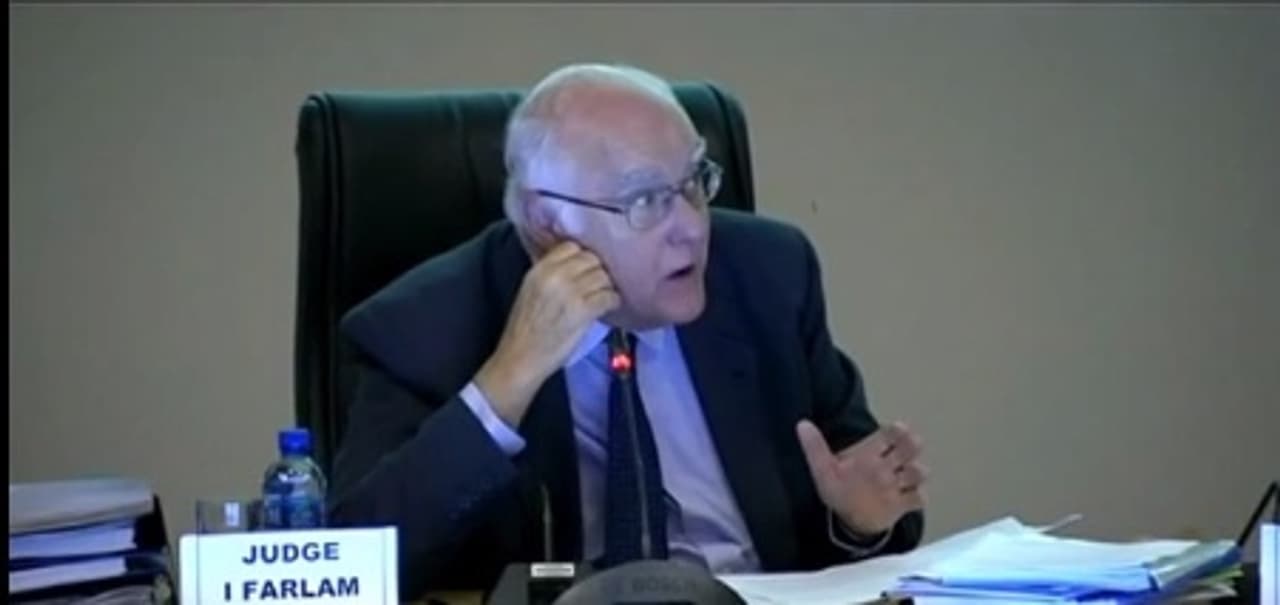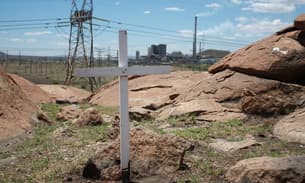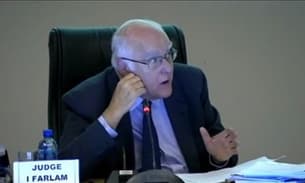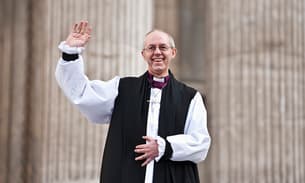
‘There will be no justice for the miners of Marikana’: worrying signs inquiry will end prematurely
Judge Ian Farlam leads the commission of inquiry into the massacre of South African miners in Marikana.
Top lawyers have expressed dismay about changes made to the commission of inquiry into the deaths of 34 South African mineworkers at Marikana in 2012, which they say mean key participants including government ministers, are now unlikely to be properly probed.
The commission, headed by retired judge Ian Farlam, was set up in October 2012, after 34 striking miners were killed and a further 78 injured in one day, in the bloodiest security crackdown since the end of apartheid.
Earlier this week the terms of the commission were changed. Originally they set out that the commission would explore: ‘The role played by the Department of Mineral Resources or any other government department or agency in relation to the incident and whether this was appropriate in the circumstances and consistent with their duties and obligations according to law.’
The clause mentioning government departments and agencies was deleted.
At the same time the commission, due to have completed last month, was extended to July. But lawyers for all parties have been warned to prepare for oral submissions to be presented in July, suggesting conclusions will be drawn soon after.
Although the timeframe of the commission has been changed several times, lawyers have not been told to prepare for the commission’s conclusion before.
The suggested new timeframe means that while the commission has taken nearly a year to analyse testimony from the police, evidence from other parties, including the company involved, and the government ministers in post at the time, will be heard in just over two months.
Lawyers and activists are alarmed that the commission’s new terms of reference and the tight timeframe makes it almost impossible to thoroughly question key actors from the British-owned mining company Lonmin, and the relevant government ministers.
‘The commission is being expedited and will be arbitrarily completed by 31 July 2014. This amounts to 34 more sitting days, allowing virtually no time to cross examine key officials at Lonmin and the ANC’s [African National Congress’s] cabinet,’ said Rehad Desai, spokesman for the Marikana Support Campaign.
Jim Nichol is a British lawyer who has been helping the legal team for the victims’ families since the commission began. He told the Bureau of Investigative Journalism: ‘For 18 months it has been like watching paint dry at the commission. We went round and round in circles with police witnesses giving testimony. But recently things have begun to change, the cracks in the testimony are starting to show, we are getting close to the truth only for our work to be cut short.
‘Not a single Lonmin director or government minister has given evidence, not one. There will be no justice for the miners of Marikana,’ he added.
Last year the Bureau uncovered evidence of interactions between the FTSE 250 listed company, government officials and the South African police force in the period leading up to the massacre.
Emails and letters between Lonmin officials and government ministers revealed an intense dialogue in which the company pushed for ‘concomitant action’ from the authorities against the strikers.
Related story: Questions raised about role of British company in South African mining massacre
The transcript records Mbombo noting that what they do at the Lonmin mine ‘has a serious political connotation that we need to take into account … we need to act such that we kill this thing’. Lonmin’s Mokwena agrees: ‘Immediately, yes.’
Lonmin’s chief commercial officer Albert Jamieson also wrote to the minister for mineral resources Susan Shabangu three days before the massacre, asking her to act more decisively and to ‘bring the full might of the state to bear on the situation’.
This followed a brutal act of violence which left two Lonmin security officers dead and company sources have suggested executives were asking for support from government forces in an attempt to keep the peace, rather than get the miners back to work. Certainly they got the extra police. Between the sending of Jamieson’s letter on August 13 and the follow-up emails and lobbying two days later, the number of police on the Marikana site more than tripled.
These are events lawyers acting for the miners would like to probe, but they are now concerned they will not have time to thoroughly examine these interactions between those in positions of power and responsibility.
Neither Shabangu, the minister of mineral resources, nor the minister of police have yet appeared before the commission. Key Lonmin directors including Jamieson have also not been called and the interactions between ministers, the police and the company have not been explored.
When the Bureau first published its findings Lonmin declined to comment, stating that it had committed not to discuss matters until it was called to testify at the commission.
Responding to these new developments, a spokesperson told the Bureau: ‘Lonmin has been waiting for some time for the opportunity to give evidence and remains willing to do so.’
Related story: Shareholders question Lonmin over Marikana massacre
Meanwhile, the Shadow Minister for police, Dianne Kohler Barnard responded to the changes in a public statement, saying: ‘This underhanded move will, we believe, have the potential to completely undermine the credibility of Commission’s pending report and prevent the truth of what happened two years ago from being made public.
‘It is clear that Mr Jacob Zuma took full advantage of the distraction provided by the election season to limit the scope of the commission in an effort to shield government departments from testifying and taking responsibility for their part in the August 16 tragedy.’
Last week the ANC and President Jacob Zuma won the South African elections, ensuring their already-20 years in power are extended for another five.
Kohler Barnard has now said she will write to President Zuma to ask for clarification on the changed terms of reference.
Related story: Timeline of a massacre
Charles Wesley, a spokesperson for the Farlam Commission, told the Bureau: ‘It is correct that the President has extended the term of the commission to 31 July 2014. It is not envisaged that this will result in the evidence of any material witnesses not being [heard]. Rather, we anticipate that all material witnesses who have yet to testify will still do so in the time that is available.’
Judge Farlam said: ‘The commission has received statements from the ministry of police and Mr Cyril Ramaphosa… as matters currently stand, it is anticipated that they will be called to give oral evidence.’
Shadow Minister for police, Dianne Kohler Barnard
Cyril Ramaphosa was a non-executive director of Lonmin at the time of the massacre and closely linked to the ANC. He later became deputy president of the ANC. Although he has already given evidence to the commission, it was assumed he would be called again for further questioning.
Rehad Desai, spokesman for the Marikana Support Campaign, said: ‘Suddenly following the elections, the inquiry process becomes highly truncated when it comes to the turn of the Government and Lonmin. We are forced to ask are they trying to stop further key evidence from emerging that points to their collusion in the massacre.
‘It was a hallmark of apartheid injustice that murders and massacres were systematically covered up, and the part played by politicians in directing lethal operations was hidden from view. We cannot allow this to happen today,’ he added.




